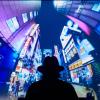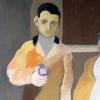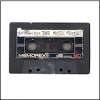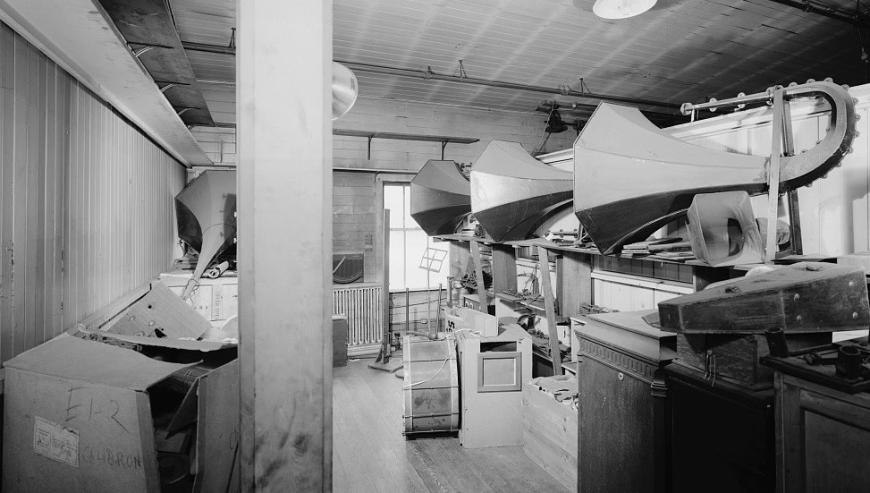
“I like to describe this as IMAX for the ears,” quipped San Francisco Tape Music Festival co-organizer Matt Ingalls at the beginning of Saturday evening’s first program. “We can stretch the sonic image from a gigantic canvas to a narrowly focused tiny screen in the front.” As is customary for this long-running and frankly essential Bay Area event, the audience was ushered into darkness in the cold yet cozy confines of the Victoria Theatre, an ad-hoc installation of loudspeakers encircling us. Festival directors and composers in attendance took turns in operating the controls for the playback of each piece, expertly manipulating monophonic and stereo compositions around the expanded soundstage.
Each evening of this year’s edition of the festival featured an excerpt from French composer Pierre Schaeffer’s Five Studies of Noises, among the earliest electronic compositions and a textbook demonstration of the aesthetic and plastic potential of found sounds. For the 7 p.m. set on Saturday, the selection was “Étude pathétique,” also known as “Étude aux casseroles” (1948/1971), a piece that takes the kitchen as the source for its sonic collage. In the 1940s, Schaeffer and his collaborators at Radio France had begun working in what they termed musique concrète (literally, concrete music), employing the recorded sounds of everyday objects.
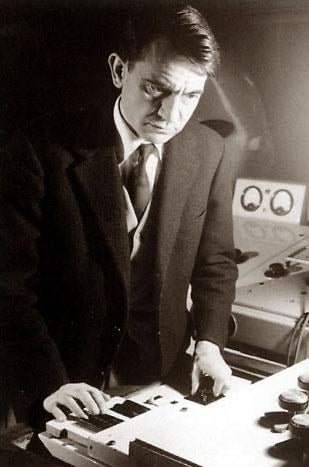
At a technological juncture that predated the widespread use of magnetic tape, these Five Studies were realized on closed-groove records, each playing back a single “sound object,” dissected, explored, and reassembled through mixing, reversal, speed manipulation, and other editing techniques. A distinctive characteristic emerging from the use of these “looping” records is the infusion of periodicity into any sound source through repetition. Whether from trains, tops, or pots and pans, sounds inescapably groove in these pieces.
The only other older work on the program was Mambo à la Braque, a 1990 piece by Mexican composer Javier Álvarez, who died in 2023. Here Álvarez took a cubist approach to a mambo by Cuban composer Perez Prado, tessellating the source material in a playful yet sensitive way, preserving its distinctive rhythmic qualities and eliciting more than a chuckle with a final mambo “huh!”
The rest of the night’s compositions offered a range of connections to the earlier pieces and to each other, affirming both the vitality of electronic music and its innate tendency to honor its elders. Such connections were sometimes overt, as in Rocío Cano Valiño’s Okno (2020), an aural play commissioned by Radio France and realized at the Groupe de Recherches Musicales, the studio that Schaeffer, Pierre Henry, and Jacques Poullin founded in 1951 to promote and develop their acousmatic work. Cano Valiño’s piece explores the continuity between real and imaginary sounds, arriving at extremes of register, gesture, and dynamics through both sudden contrasts and near-imperceptible transformations.
Manuella Blackburn’s Cupboard Love (2022) provided another callback to Schaeffer. In her piece, processed hinge creaks act as gateways into the sonic and physical memories of the small objects contained therein, with synthesized tones adding deeper emotional tints.
The contemporary technique of granulation (the digital process of splitting sounds into extremely short segments, which are then rearranged, transformed, and layered to create new sounds and textures) also featured prominently in David Berezan’s Ukulele (2023) and Kristin Miltner’s Sublime, Subliminal (2023). The former builds a sweeping symphony of tones, glitchy and seamless, steady and swooping, all from the leisurely plucking of its titular instrument’s four open strings. The latter offers a more surreal soundscape, seemingly governed by a kind of dream logic, in which faint vocalizations, breath sounds, and crystalline pads alternatively come to and recede from the fore.
Other compositional and aesthetic approaches were on display in Fernando Lopez-Lezcano’s humorously titled Tickle That Dinosaur! (2023), a recording of a live improvisation on a collection of modular synthesizers that date back to the 1980s (not quite prehistoric, but you get the idea). Tactile scrapes and bumps erupt into roaring walls of feedback. It was a reminder that, despite the austere setting of the festival, these artists aren’t averse to shaking loose a filling or two.
The audience also seemed to find humor in the bleating choruses of Jeff Rice’s Sheep Drive (2021), which vividly documents the passage of thousands of sheep (toward what I hope were greener pastures) and was one of the few pieces on the program to include field recordings.
Two pieces edged toward slightly more “popular” types of electronic music. Emil Margolis’s ephemeral So We Won’t Forget (Venice Lido Sunset Mix feat. Alex Ness) (2022) is based on piano ruminations of the harmonic progression from the eponymous song by indie-rock band Khruangbin, inadvertently recorded through a Bluetooth microphone in a different room to ghostly results. And Blevin Blectum’s OMNII POLYHEDRAL PARTICULATES (2023), an atmospherically epic “soundtrack to a lost space opera,” engulfed the room with subtly shifting harmonies and prismatic echoes, bringing the program to a suitably metaphysical close.


